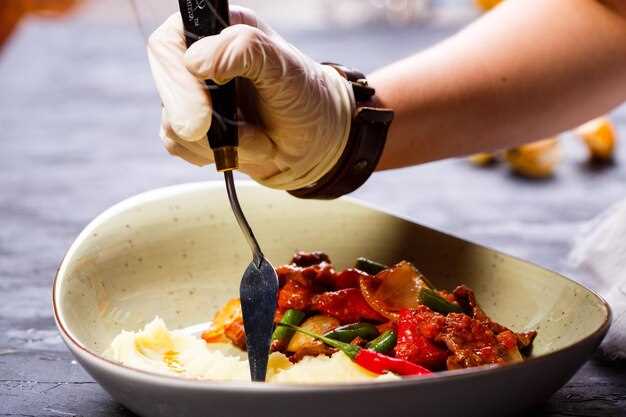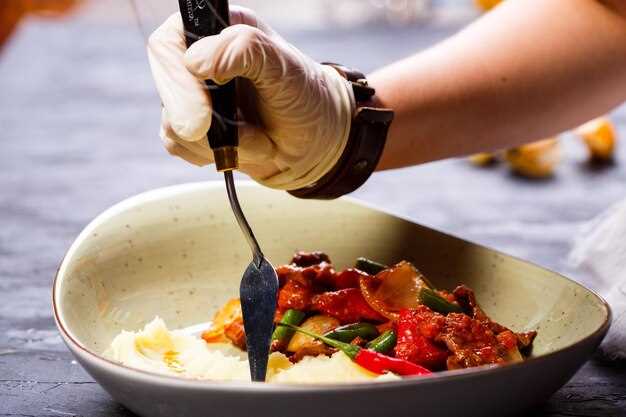If you’re ready to experience Southern comfort food like never before, try the creative approach of a renowned vegan chef who has skillfully reinterpreted classic dishes. With an expertise in plant-based cuisine, this culinary artist has delivered a fresh take on traditional recipes, ensuring they remain both comforting and nutritious. Imagine succulent pulled “pork” sandwiches crafted from jackfruit or spicy collard greens sautéed to perfection without compromising on rich, Southern flavors. This is a gastronomic adventure that promises to satisfy the taste buds while aligning with vegan principles.
Emphasizing flavor without the use of animal products, the chef incorporates local and seasonal ingredients that highlight the essence of Southern cuisine. The transformation of dishes like biscuits and gravy or jambalaya using legumes, grains, and a plethora of vegetables showcases the true versatility of plant-based cooking. Additionally, by focusing on savory herbs and innovative spice blends, the familiar notes of nostalgia are maintained, allowing both vegans and non-vegans to partake in this reimagined dining experience.
The chef’s dedication to health-oriented, sustainable cooking elevates the dining experience. By opting for organic produce and minimizing processed ingredients, their recipes promote well-being without sacrificing taste. Equally important is the community support fostered by sourcing from local farmers, highlighting the interconnectedness of sustainable practices and culinary innovation. The journey to reinvent Southern comfort food begins with a single bite that balances tradition and creativity, and it invites you to embrace the vibrant diversity of vegan cuisine.
The Journey of a Vegan Chef

Focus on developing your unique culinary voice. Begin by exploring traditional Southern dishes and imagine how you can modify them using plant-based ingredients. For instance, try creating a meatless jambalaya by substituting tofu or tempeh for sausage and adding a range of colorful vegetables.
Education plays a pivotal role, so consider attending workshops or online courses centered on vegan cooking techniques. Engage with your culinary peers to gain insights into innovative methods that enhance flavors without relying on animal products. Collaborating with other chefs can also open doors to creative ideas and unique partnerships.
Another important aspect is building a strong relationship with local farmers and producers. Access to fresh, high-quality ingredients not only supports your commitment to sustainability but also elevates the taste and nutrition of your dishes. Regularly visit farmers’ markets to discover seasonal produce that can inspire new recipes.
Embrace experimentation and be prepared for trial and error. Document every attempt, noting both successes and failures, to refine your approach over time. Consider hosting tasting events or pop-up dinners to gather feedback and gauge public interest in your creations.
Effective communication with your audience is essential. Utilize social media platforms to share your culinary innovations, engage with followers, and establish your brand as a leader in vegan Southern comfort food. Share behind-the-scenes glimpses of your cooking process, new recipes, and tips for home cooks.
| Step | Action |
|---|---|
| 1 | Explore Southern recipes using plant-based alternatives. |
| 2 | Engage in educational opportunities and network with chefs. |
| 3 | Build relationships with local farmers for fresh ingredients. |
| 4 | Experiment with recipes and host tasting events for feedback. |
| 5 | Leverage social media to share your journey and connect with your audience. |
From Traditional Southern Roots to Veganism
Transform classic Southern ingredients by substituting meat with hearty plant-based options. For example, try using jackfruit in place of pulled pork. Its fibrous texture and ability to absorb flavors make it a perfect alternative for barbecue dishes. Jackfruit not only mimics the texture of meat but also offers a neutral taste profile that can easily be seasoned to match traditional Southern spices.
Consider enriching your vegan Southern meals with collard greens, traditionally simmered with pork. Swap the meat with smoked tempeh or liquid smoke to keep that signature depth of flavor. This ensures your greens remain tender and delicious, appealing to both vegan and non-vegan palates.
Creamy dishes like mashed potatoes or grits can be equally satisfying without dairy. Opt for vegan butter or nutritional yeast to maintain creaminess and add a cheesy note, respectively. Coconut milk or almond milk provides a lush texture without altering the classic taste significantly.
Enhance your vegan Southern recipes by seasoning with essential spices such as cayenne, paprika, garlic powder, and black pepper. These can elevate the flavors, making dishes robust and reminiscent of their traditional roots.
Overcoming Challenges in Sharing Vegan Southern Cuisine
Focus on flavor by incorporating spices and herbs like smoked paprika, thyme, and bay leaves to create depth and authenticity. Highlight traditional Southern ingredients such as collard greens, okra, and black-eyed peas, substituting plant-based options like jackfruit for pulled pork or mushrooms for fried chicken.
Introduce your audience to the nostalgic taste profiles they love, but with a vegan twist by sharing cooking demonstrations at local events, farmer’s markets, or online platforms. Engage your community with stories about your vegan dishes’ origins and cultural significance, making them more relatable and embracing the culinary heritage of the South.
Continuously adapt recipes based on feedback from taste tests at pop-up dinners or food truck events. Encourage non-vegan friends to experience these dishes and provide their input, which will help fine-tune textures and flavors. Use social media strategically to reach a broader audience and create conversations around your creations, asking your followers to share their experiences and tips.
Building partnerships with local farmers to procure fresh, organic produce will ensure high-quality ingredients and support your community. Collaborating with influencers who hold a passion for both Southern cuisine and veganism can amplify your message and draw in enthusiasts from diverse backgrounds, creating a shared appreciation for vegan Southern comfort food.
Building a Unique Culinary Identity
Highlight local ingredients to create a distinctive flavor profile that resonates with your community. Integrate indigenous produce to both preserve traditional southern elements and accommodate vegan principles. Use smoked paprika or liquid smoke to impart a classic barbecue hint without using animal products. Incorporate textural diversity by experimenting with jackfruit or seitan to replicate the satisfyingly hearty essence of comfort food.
Focus on storytelling; share the origins of each dish and your motivation for a plant-based twist. This narrative approach not only builds connection with diners but also adds an educational layer to their experience. Encourage engagement by hosting interactive cooking classes that demystify vegan versions of southern classics. This involves your audience in the culinary process, turning meals into memorable learning adventures.
Ensure authenticity by maintaining the soul of each dish. Reinvent familiar recipes with creativity but adhere to the nostalgic warmth that defines comfort food. Offer a vegan jambalaya bursting with bold flavors, using spices and plant-based proteins to satisfy without compromise. Curate an experience where diners find solace in both the familiar and the innovative qualities of your menu.
Collaborate with local artisans and farmers to strengthen community ties and highlight your commitment to sustainability. Building these relationships enriches your offerings with unique products while supporting regional economies. Your culinary identity gains depth through these connections, making your eatery a beacon of gastronomic innovation.
Impact on Local and National Food Scenes
Introduce vegan versions of beloved Southern classics by sourcing ingredients from local farms to encourage sustainability and support community businesses. Connecting with local farmers reduces the carbon footprint and enhances the flavors of dishes. Collaborate with regional culinary schools to share plant-based culinary techniques, offering workshops or guest lectures to inspire upcoming chefs to experiment with vegan Southern cuisine.
On a larger scale, showcase Southern vegan flavors at national food festivals to broaden awareness and enthusiasm for plant-based Southern dishes. Participation in these events boosts visibility and highlights the versatility of vegan cooking, encouraging other chefs and restaurants to integrate plant-based options into their menus.
Creating partnerships with national vegan organizations can also amplify support. For instance, teaming up with advocacy groups for plant-based diets can lead to influencers promoting new dishes on social media, fostering a wider audience. Additionally, writing a cookbook focused on vegan Southern comfort food can position this culinary style as a staple in households across the country, bridging traditional flavors with modern tastes.
| Strategy | Local Impact | National Impact |
|---|---|---|
| Partnering with local farms | Boosts local economy, ensures fresh produce | Sets a precedent for sustainable sourcing |
| Participating in food festivals | Raises profile in the local community | Expands reach and introduces vegan cuisine nationwide |
| Collaborating with culinary schools | Educates future chefs on plant-based techniques | Inspires educational institutions across various regions |
These efforts in reshaping Southern comfort food contribute to a broader acceptance and enthusiasm for vegan cuisine, making it more than just a trend but a lasting component of the culinary domain.
Exploring Vegan Southern Recipes

Start by trying a vegan take on the traditional Southern dish, gumbo. Substitute okra with hearty vegetables like zucchini and bell peppers, and replace sausage with smoked tempeh for a rich flavor. Add file powder and Cajun spices to give your gumbo an authentic taste.
- Vegan Jambalaya: Use jasmine rice as a base, mix in black-eyed peas, tomatoes, and a mix of colorful bell peppers. Season with smoked paprika and thyme to capture the essence of the South.
- Collard Greens: Skip the bacon and opt for liquid smoke to impart a smoky taste. Sauté with garlic, onions, and apple cider vinegar for a tangy twist.
- Sweet Potato Biscuits: Swap regular butter for coconut oil and blend in puréed sweet potato for sweetness and moisture. These fluffy biscuits pair wonderfully with a vegan gravy.
For dessert, think about a vegan pecan pie. Use maple syrup and coconut cream to create a silky filling, and roast pecans to accentuate their flavor. Or try a veganized banana pudding by using almond milk and aquafaba to mimic a creamy texture without any dairy products.
Experiment with these ideas to bring the warmth and comfort of Southern food into the vegan kitchen. Each recipe captures the essence of Southern cuisine while offering a healthy and compassionate alternative.
Popular Vegan Alternatives to Classic Dishes
Replace Southern fried chicken with a crispy tofu version. Simply marinate tofu in almond milk and spices, then coat with seasoned cornmeal before frying to golden perfection. For classic mac and cheese, swap out dairy with a creamy cashew-based cheese sauce, enhanced with nutritional yeast for that beloved cheesy flavor.
- Gumbo: Craft a rich vegan gumbo using okra, tomatoes, bell peppers, and a mix of mushrooms. Add vegan sausage links and a blend of Cajun spices for added depth.
- Biscuits and Gravy: Make fluffy biscuits with almond milk and vegan butter, pairing them with a savory gravy made from sautéed mushrooms and coconut milk.
- Sweet Potato Pie: Use coconut milk and maple syrup to create a luscious sweet potato filling, and encase it in a crunchy pecan crust for a delightful twist.
- Collard Greens: Without using ham, opt for liquid smoke and soy sauce to infuse greens with the smoky flavor, complemented by a splash of apple cider vinegar.
These innovative swaps ensure that Southern comfort doesn’t mean compromising on flavor or tradition, delivering heartwarming dishes the vegan way.
Innovative Ingredients for Southern Flavors
Swap traditional buttermilk with coconut milk to retain that creamy texture while introducing a subtle sweetness. Coconut milk works remarkably in vegan cornbread and creamy coleslaw, offering a smoother consistency without the heavy dairy.
Infuse your dishes with the distinctive savoriness of smoked paprika. While traditional Southern cooking often relies on smoked meats for flavor, smoked paprika provides a dynamic alternative. It enhances vegan gumbo and jambalaya with its robust and smoky essence.
Transform collard greens by using nutritional yeast, a deactivated yeast rich in B-vitamins, providing a cheesy flavor without dairy. This ingredient pairs wonderfully with sautéed greens, garlic, and a hint of lemon juice, creating a side dish bursting with zest.
Experiment with jackfruit as a plant-based substitute for pulled pork. Its fibrous texture and ability to absorb flavors make it ideal for BBQ sandwiches and tacos, capturing the essence of traditional Southern BBQ without meat.
For a sweet finish, experiment with aquafaba, the liquid from canned chickpeas, as a vegan egg white substitute. Use it to create fluffy biscuits or light meringues, maintaining the cherished textures Southern desserts are known for.
Creating Texture and Comfort in Plant-Based Meals
Begin with innovative ingredient combinations to mimic the richness of traditional southern dishes. Focus on using ingredients like mushrooms, jackfruit, and cauliflower, which can replicate the texture of meat when cooked properly. For instance, season mushrooms with smoked paprika and garlic, then sauté them to bring out their umami flavors, providing depth comparable to a meat dish.
Utilize nuts and seeds for creaminess without dairy. Cashews, when soaked and blended, create a velvety sauce perfect for a plant-based macaroni and cheese. Add nutritional yeast for a cheesy flavor that complements the nuttiness of cashews. This transformation of simple ingredients into luxurious sauces will highlight the comforting nature of southern cuisine.
Experiment with layering textures within a dish to maintain interest and satisfaction. A vegan gumbo can incorporate tender okra, chewy seitan chunks, and quinoa for a diverse mouthfeel. The combination offers a hearty, comforting dish that retains the essence of southern comfort food.
Spices play an essential role in creating depth and warmth. Incorporate blends like Cajun seasoning or Creole spices to elevate basic plant components into a tapestry of flavors that feel inherently comforting. Don’t shy away from traditional southern herbs such as thyme and bay leaves to enhance these blends.
Employ traditional cooking techniques with a plant-based twist. Slow-cooking vegetables can coax rich, hearty flavors reminiscent of classic slow-simmered stews. Consider using a slow cooker for collard greens with vegetable broth and smoked tempeh to capture that comforting taste southerners cherish.
Explore fermentation for a tangy depth in your dishes. Sauerkraut, kimchi, or miso can introduce an unexpected, pleasant twist, adding complexity to traditional favorites. A spoonful of miso in gravy or a side of tangy kimchi with vegan fried chicken enhances both texture and flavor, delivering a modern comfort food experience.
Finally, remember presentation. A thoughtfully plated meal, with varied textures and vibrant colors, not only enhances the dining experience but also cements the comforting aspect of plant-based southern cuisine.
Recipes for Home Cooks: Transforming Your Kitchen
Experiment with swapping traditional ingredients for plant-based alternatives like jackfruit, tofu, or seitan in your beloved Southern dishes. For a hearty vegan gumbo, use jackfruit as a substitute for meat, and enhance the flavor with Cajun spices, okra, and a rich tomato base.
Try baking sweet potato biscuits using almond milk and vegan butter. These ingredients maintain the flaky texture and buttery flavor you love. Add herbs like rosemary or thyme for an unexpected savory twist.
Recreate classic fried chicken using cauliflower florets or oyster mushrooms. Dip them in a batter of chickpea flour, spices, and unsweetened almond milk before frying. Enjoy the familiar crunch without compromising on taste or ethics.
Make creamy mac ‘n’ cheese by blending soaked cashews, nutritional yeast, garlic, and a pinch of mustard powder for a deliciously cheesy sauce. Pour over your favorite pasta and add a breadcrumb topping for extra texture.
Reinvent collard greens with a smoked tempeh or coconut bacon for the smoky flavor traditionally provided by ham. Sautee with garlic and onions, then simmer for a few minutes. This quick switch offers a healthier way to enjoy this classic side dish.
Q&A:

What inspired the vegan chef to focus on Southern comfort food?
The chef was inspired by the rich flavors and cultural significance of Southern cuisine. They wanted to bring a plant-based perspective to these traditional dishes to make them accessible and enjoyable for vegans, while also honoring the history and essence of Southern food.
How did the chef manage to maintain the authenticity of Southern dishes while making them vegan?
The chef focused on substituting traditional ingredients with plant-based alternatives that provide similar textures and flavors. By using seasonings and cooking methods that are central to Southern cuisine, they kept the essence of the dishes intact, even when using different ingredients.
Are the vegan versions of Southern comfort food healthier than the traditional ones?
Vegan versions often contain less cholesterol and saturated fat since they avoid animal products. However, the healthiness of a dish can depend on the specific ingredients and preparation methods used. The chef aims to offer options that are not only plant-based but also nutritious and satisfying.
Did the chef face any challenges while creating vegan Southern dishes?
Yes, one of the main challenges was replicating the deep, robust flavors of Southern dishes without using meat or dairy. Finding the right balance of spices and choosing the best plant-based ingredients required experimentation and creativity.
What has been the public’s reaction to the vegan interpretations of Southern comfort food?
The reaction has generally been positive, with many people appreciating the innovative approach and delicious outcomes. Both vegans and non-vegans have shown interest in trying these new versions of classic dishes, leading to increased awareness and acceptance of vegan cuisine.
How does the vegan chef manage to create traditional Southern flavors without using animal products?
The chef uses a combination of spices, herbs, and innovative plant-based ingredients to mimic the rich and hearty flavors typically found in Southern cuisine. For example, smoky flavors are recreated using smoked paprika or liquid smoke, while meaty textures can be achieved with ingredients like jackfruit, mushrooms, or tempeh. By thoughtfully combining these elements, she can create dishes that are both authentic in taste and completely plant-based.



